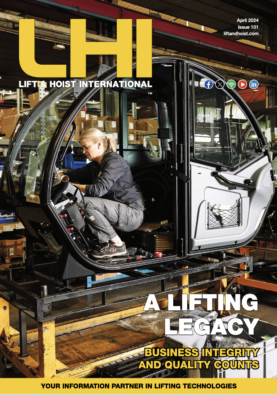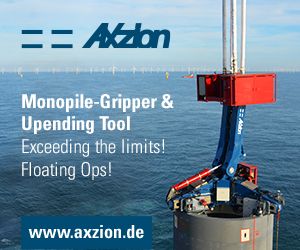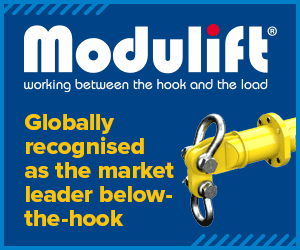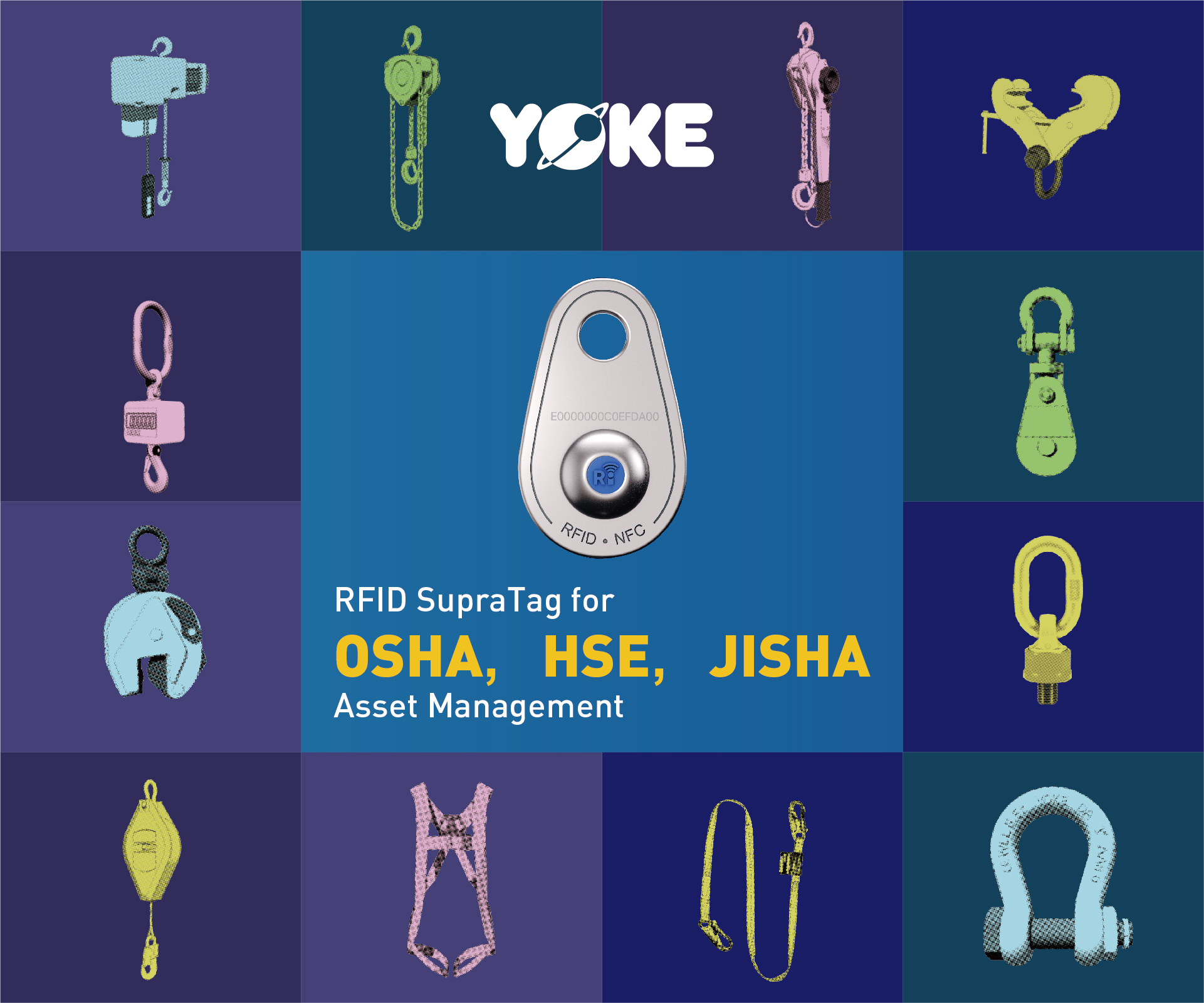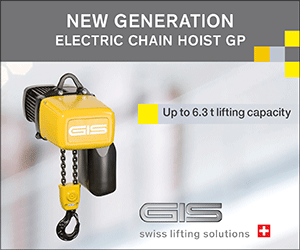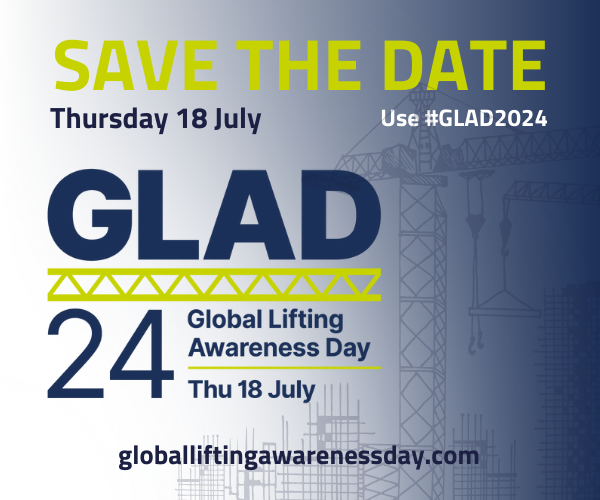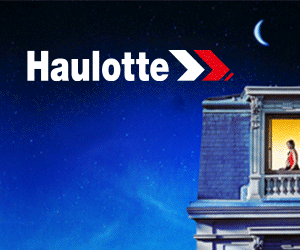)
Dynamic care
David Wilson, the CEO of Columbus McKinnon, talks to Maria Hadlow about building a progressive company by putting customers at the core of the business and helping improve their safety, productivity and uptime.
“I love thinking through multi-dimensional problems,” says David Wilson CEO of Columbus McKinnon, “I am a fairly analytical person and have a passion for progress in general – advancement, innovation and technology.” We are talking about how David’s background in engineering colours his management style. “I can listen and understand a problem then apply leadership approaches with my team. We differentiate our solutions with a deep understanding of how we function as a company and how our customers operate,” he says.
David studied electrical engineering as a first degree and went on to work at the Polaroid Corporation where he focused on manufacturing operations and advancing manufacturing operations through automation and control. His career then took him into LEAN manufacturing and process improvement then into manufacturing management, supply chain management and ultimately, product management.
“I learned that I liked to lead teams and lead business activity,” he says. “I was gravitating to the business side of things. So, I went back to business school.”
On finishing his studies David went to work for SPX Corporation, a supplier of highly engineered infrastructure equipment and technologies for four markets: heating, ventilation, and air conditioning, detection and measurement, power transmission and generation and engineered solutions. He began his career in operations at one of the largest plants in the organisation. “I was then given the opportunity to evolve my career into strategy and M&A [mergers and acquisitions]. I had great sponsorship in the company and a great mentor. I was able to help craft a strategy to develop the company I was a part of, into something larger.
“I learned that there is a broader set of items impacting a business and how you can create value and grow the enterprise. I was promoted to do more of that within SPX and ultimately led companies within SPX across a broad range of markets and geographies.”
David spent time living and working in South Africa, in Europe and in Asia for the better part of a decade. The longest period was in Shanghai, China where he lived for six years.
“Living in other countries really broadened my perspective,” he says. “Despite being well read, focused on international events and studying overseas at graduate school, I was naive and didn’t think as globally as I thought I did – I was limited.
“Now having lived and worked for an extended period of time in multiple regions I have developed a real global view. You start to see yourself as a global citizen who can appreciate market, product, regulatory, cultural and behavioural differences. I’m grateful because it has shaped me, and I bring that perspective to the company – how we focus on priorities and look to scale-up as a global organisation.”
On coming back to the US David became an officer of the company and ultimately a CEO succession finalist – but when, ultimately, that did not happen, David took the opportunity to think through what he wanted to do next.
The newly appointed CEO of Flowserve was assembling a new team to help create value within the company. “I knew that I could apply the skills I had accumulated to really make a difference and have a seat at the table at the ground floor,” says David.
“It was a terrific experience. In the three years I was there I started leading the industrial pumps division then we combined it into industrial and engineered pumps bringing two big organisations together. We were making the business much more successful one that was improving profitability and growing at rates that outpaced previous growth.”
Despite enjoying the work at Flowserve, the opportunity to join Columbus McKinnon proved too tempting an opportunity. “Seven months into the role I am even more excited than I was when I first decided to join. We have the opportunities and the potential to create something very special.”
For some years Columbus McKinnon has grown mostly through a series of acquisitions. The challenge of bringing the organisation together was begun by David’s predecessor using a multi-phase – ‘Blueprint for Growth’ strategy.
David is taking what has already been achieved and evolving it.
“The underpinning of what had been achieved was really sound,” says David. “The team made good progress in the early stages of the “Blueprint for Growth’ in phase 1 and early phase 2. The organisation remains focused on accelerating that progress, which centers around Columbus McKinnon’s performance culture. The organisation has demonstrated its progress in terms of gross margin expansion, on-time delivery, quality enhancements, development of the operational side of the business and in the earnings power of the company.”
The Blueprint for Growth also engendered a product development engine that could bring new, innovative products to the marketplace and act as a catalyst for organic growth. “We can leverage and harness that engine,” says David. “And accelerate it with the deployment of the Columbus McKinnon Business System (CMBS), which is more comprehensive than what was previously referred to as EPAS (Earnings Power Acceleration System).”
The key to David’s system is becoming more outside in focused. That means being commercially orientated, market led and customer centric – while continuing to be operationally excellent and focusing on growth.
“Our customers are key to everything we do,” says David. “Which is why, as an organisation we are more outside in focused and market led. We have to ask how do we best serve customers with improvements to the customer experience?
“So, as we look at fiscal year 22, which begins in April, and we look at our core strategic initiatives, they are underpinned by improving the customer experience. Making sure we do what we say we are going to do, in terms of meeting delivery commitments, launching products that solve customer problems and focusing on aftermarket service.
“We also need to solve the evolving needs of customers that have developed further through the pandemic, such as using video connectivity, remote service and technician support, more online training and learning management systems.
“There are tangible benefits to being more outside in focused and we must make sure we align internally in a way that supports customer needs.”
Many of the Columbus McKinnon brands have a fierce loyalty from customers, but with brands working in similar and complementary areas there is an element of product cross-over that does not contribute to streamlining the company’s offering.
“We are working on having minimal impact on customers as we evolve product lines,” says David. “While at the same time trying to create more value.
“We use an 80/20 focus in looking at product line simplification, we evaluate areas where we have inefficiency and product overlap and also areas where we have customer need. So, as we simplify the product lines, and look to bring out more products, we are focused on making sure that those new products offer features and benefits that advance and support our customers’ needs in a way that is differentiated and makes their experience better.
“From an outside in perspective, we have a lot of communication and feedback from the customer making sure we are getting their input into the process. I see it as being a net-positive for customers and Columbus McKinnon as we seek to simplify our offering. I think we can create seamless, more competitive offerings that benefit our customers.”
Perhaps it’s the latent engineer in David but his enthusiasm increases further when he talks about product development.
“We are focused on increasing the safety, productivity and uptime of our customers. There were evolving trends around automation already, and recent circumstances have increased the need for separation in the workplace. People need to work more individually and there are fewer people in the same working area.
“Moving heavy objects or materials, whether it be in a manufacturing process or a warehousing environment, is critical. We are marrying our Magnetek drives and controls and our lifting equipment to provide intelligent motion. It is an area we can bring differentiated value in material handling for factories and warehouses of the future,” he says.
Columbus McKinnon’s Intelli-Crane range of solutions uses automation technology to improve customers’ safety, productivity, and uptime. Intelli-Protect features no-fly zone technology to help protect assets and personnel in working areas while improving facility throughput. Intelli-Lift helps prevent load swing caused by load misalignment when the rope and hook are not vertical. Intelli-Guide allows operators to automatically send a load to different pre-programmed areas in a facility with the push of a button.
“We can employ automation to improve safety, uptime and productivity but we will also develop our core industrial products to make them even more fit-for-purpose and suitable for global markets,” says David.
“Just because a product is successful in one region doesn’t mean it will be equally successful elsewhere – we have to listen to input from those markets. What features and benefits do they need?
“We have a lot of exciting developments in the pipeline – core products, channel expansion and geographic expansion.”
While the pandemic may be accelerating the implementation of automation in the workplace – how did it impinge on the first months of David’s tenure as CEO?
“It was a challenging time to make any transition,” he says “But I’ve been blessed.
“I was drawn to the company because of its rich history and market leading position and when I met the board, I learned about the progress being made and saw so much potential.
“My team and the board have been incredibly supportive, and we are lucky to be going through this challenge at a time when technology has enabled us to stay connected and work remotely when necessary.
“Another accomplishment of the Columbus McKinnon team, which has impressed me, relates to our core value of safety. By employing the right approach, our operating sites have been able to remain operational and very safe for employees. We have also been able to respond positively – to our customers’ requirements.”
David obviously has a great deal of ambition for Columbus McKinnon and sees a future where digitalisation and connectivity are key to providing customers with safety, up time and productivity.
He predicts a future where a customer can go to the online portal to configure a crane or piece of lifting equipment and get a price and a quote through a configuration tool. Once the order is confirmed, a digital output can be fed into an ERP system setting in place material and component orders.
“I can really envisage end-to-end connectivity in the digitised environment that delivers a lot of efficiency and value,” he says.
David also looks forward to a greater uptake of the IoT, “Collecting information from our equipment will allow us to monitor how they are used, predict and prevent downtime, with maintenance or timely parts supply. It will also provide us with information to put back into our own product development,” he says.
The lifting industry is often characterised as traditional and slow to change, but it has so much potential to evolve and make a real impact in every industry in which it is used. David Wilson is clearly motivated by that potential and is keen to embrace the technology evolution.
“The agility that has been demonstrated during the pandemic and the speed at which Columbus McKinnon can operate as a global company is something that I am really excited about. We have the framework to be more progressive as a company, to scale up and serve customers better around the world.”


